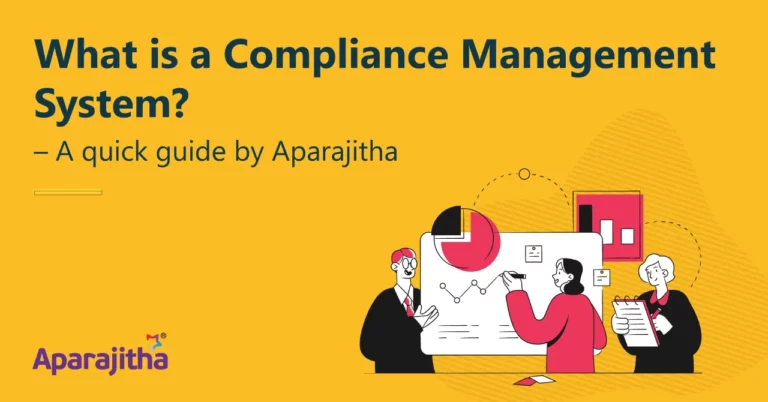Introduction: The Backbone of the Indian Economy
Micro, Small, and Medium Enterprises (MSMEs) are often hailed as the backbone of the Indian economy. This sector accounts for nearly 30% of India’s GDP. Notably, MSMEs contributed 30.1% to India’s exports in the fiscal year 2022-23, with projections indicating this figure could rise to 45.79% by 2024-25. This sector is pivotal in job creation and plays a vital role in promoting inclusive growth and regional development.
However, despite their economic significance, MSMEs in India struggle with compliance-related challenges, and many are unaware of the compliance requirements for their sector, often not considering it a crucial element. Regulatory awareness within the sector remains low, making it difficult for many businesses to navigate the complex legal landscape. Compliance is often seen as burdensome rather than beneficial, which can negatively impact long-term growth prospects. In this blog, we aim to demystify regulation compliances, emphasizing the critical role it plays in driving MSME businesses.
Why Investing in Compliance is Crucial for MSME Growth
Compliance refers to adhering to legal, regulatory, and operational guidelines set by the government. For MSMEs, compliance encompasses various aspects, including labour laws, tax regulations, environmental laws, safety laws, industrial laws, and more. There are several important acts governing MSMEs, including the MSMED Act, GST Act, EPF Act (Provident Fund), ESI Act (Employees’ State Insurance) etc, and various licensing requirements, which provide the legal framework for the sector. These regulations ensure businesses are sustainable, protected, and compliant, covering everything from taxation to social security contributions and obtaining necessary licenses to operate legally.
Despite the common perception that compliance is a burden, it plays a crucial role in sustaining and scaling MSMEs. Here’s why:
- Legal Protection: Compliance shields MSMEs from potential legal actions, penalties, and closures.
- Attracting Investment: Investors are more likely to fund compliant MSMEs because they pose less financial risk. Compliance ensures that businesses are legally sound, reducing the risk of financial loss.
- Social Compliance and Trade Opportunities: Adhering to social compliance standards—such as labour rights, fair wages, and ethical practices—is crucial for MSMEs in international trade. Global buyers increasingly favour businesses that meet these standards, helping MSMEs access export markets and build lasting trade relationships.
- Access to Financial Aid: Banks and financial institutions prefer lending to compliant MSMEs, which opens up credit opportunities.
- Market Access: Many large companies only work with compliant suppliers, meaning MSMEs can access larger markets by adhering to regulations.
Regulatory Compliance Challenges Faced by MSMEs
- Complex Procedures: Many compliance processes involve lengthy paperwork and multiple approvals, diverting resources from core business activities.
- Lack of Awareness: Many MSMEs are unaware of the regulatory requirements applicable to their businesses, leading to non-compliance and financial penalties.
- High Costs: Compliance often requires investment in skilled professionals or technology, which may be unaffordable for smaller enterprises.
- Lack of Internal Bandwidth: Many MSMEs lack dedicated teams or resources to handle compliance management effectively, making it difficult to stay updated on regulatory changes and fulfill requirements.
- License Management: Securing, renewing, and amending licenses is often a complex process for MSMEs, and many businesses struggle with knowing which licenses apply and how to manage them efficiently, increasing the risk of legal issues.
Recent Developments and Government Support for MSMEs
In recent years, the Indian government has introduced several schemes and taken many initiatives to ease red tape, in support of the growth and formalization of MSMEs. Understanding compliance is more critical than ever, given the opportunities these schemes offer.
Udyam Registration and Its Impact on MSMEs
One of the key steps in formalizing MSMEs and ensuring compliance is through Udyam registration. Introduced by the Ministry of MSME, this portal simplifies the registration process for businesses, allowing them to gain legal recognition and access various government schemes and benefits. As of 24th October 2024, over 30,372,201 MSMEs have registered on the Udyam portal, reflecting the growing awareness of formalization among small and medium enterprises.
By obtaining an MSME certificate through Udyam, businesses can access benefits like subsidies, credit facilities, and government-backed loans, which are crucial for their growth and sustainability. A list of documents required for MSME registration is available on the Udyam portal. Furthermore, MSME Udyam registration ensures that MSMEs stay compliant with legal regulations, thus avoiding penalties and legal complications.
Key Government Schemes
Apart from the Udyam registration portal, there are numerous initiatives and schemes offered by the government for the development of the MSME sector. Prime Minister’s Employment Generation Programme (PMEGP), the Public Procurement Policy for MSEs, the Scheme of Fund for Regeneration of Traditional Industries (SFURTI), the Credit Guarantee Scheme for Micro and Small Enterprises (CGTMSE), and the MSME Champions Scheme are some of the key initiatives aimed at supporting the MSME sector.
Government Intervention that Simplify Compliance under Ease of Doing Business
Given these challenges, simplifying compliance is key to unleashing MSME potential. Here are some ways the government is addressing these hurdles:
- Single-Window Clearance Systems: By streamlining the approval process through single-window systems (National Single Window System (NSWS)), MSMEs can obtain necessary permits faster and with less effort.
- Simplified Tax Filing: Filing taxes, especially Goods and Services Tax (GST), can be daunting for MSMEs. The government is working to introduce simplified tax filing systems, making compliance more accessible.
- Digitization of Processes: The government aims to make regulatory processes more transparent, efficient, and user-friendly by encouraging digital platforms for compliance. Digitization reduces the time spent on manual compliance tasks, allowing MSMEs to focus on growth.
The Future of MSME Compliance: Tech-Driven Solutions
The future of compliance lies in leveraging technology. Tech-driven compliance solutions offer a way for MSMEs to stay compliant without diverting significant resources. Tools such as cloud-based compliance tracking platforms can help businesses monitor regulatory changes in real-time, file before due dates, ensure 100% compliance, provide comprehensive dashboard visibility to management, and ensure adherence to various laws.
Additionally, cumbersome social audits can be streamlined with a compliance management system (CMS), as documents can be stored or backed up in the cloud, making it easier to access and manage records. As digital platforms like the Udyam Registration Portal continue to evolve, MSMEs will find it easier to register, update their compliance status, and access government schemes.
Conclusion
Compliance is not just a legal obligation for MSMEs—it’s a strategic tool for driving growth. By understanding and adhering to regulatory requirements, MSMEs can build stronger businesses, gain access to financial aid, and create lasting opportunities. As the government continues to simplify processes and introduce digital platforms, investing in compliance is more accessible than ever.
With the right mindset and tech-driven solutions, MSMEs can turn compliance from a challenge into a growth catalyst, ensuring long-term success and sustainability.







